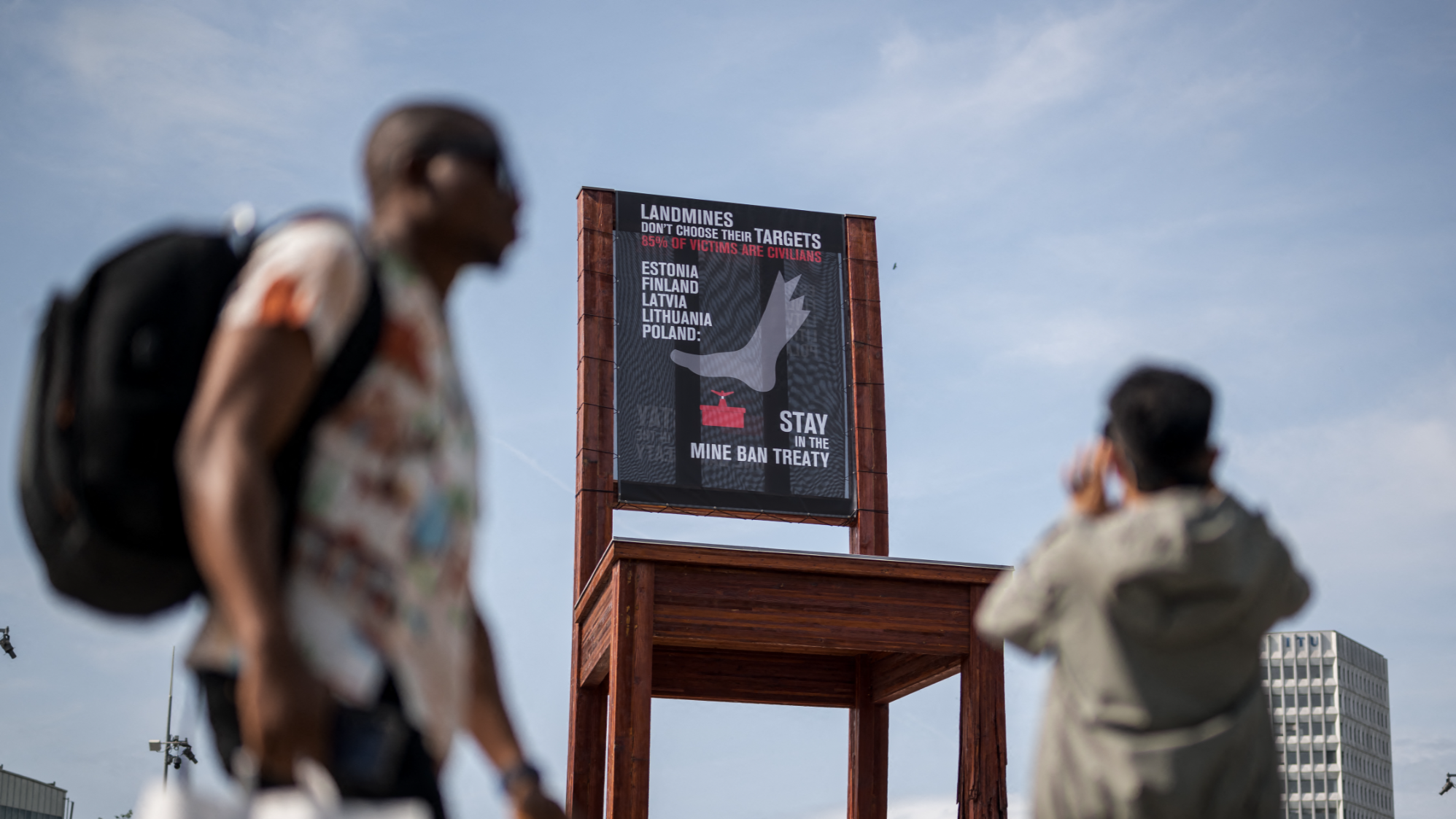Finland notifies U.N. of withdrawal from landmine ban treaty
Finland’s Withdrawal from the Landmine Ban Treaty Marks a Major Shift in European Security Policy
In a decision that has stirred global debate and raised concern among human rights advocates, Finland has formally notified the United Nations of its intent to withdraw from the Ottawa Treaty, the 1997 international agreement that bans the use, production, stockpiling, and transfer of anti personnel landmines. This decision, announced in July 2025, marks a significant change in Finland’s longstanding commitment to arms control and humanitarian disarmament. Citing growing regional threats and evolving security dynamics particularly from Russia Finland’s government has framed the withdrawal as a strategic necessity rather than a diplomatic regression.
The move follows months of deliberation within the Finnish government and parliament, during which defense officials and political leaders evaluated the country’s preparedness in the face of increasing military assertiveness from its eastern neighbor. With a border stretching over 1,300 kilometers with Russia, Finland’s leadership has expressed concern that its current defense framework lacks certain deterrent capabilities, particularly those suited for territorial denial. The ability to reintroduce landmines, they argue, provides a cost effective and strategically viable method of preventing hostile incursions in a rapidly deteriorating security environment.
While the decision has received support from Finland’s center right ruling coalition, including Prime Minister Petteri Orpo’s government, it has not come without significant opposition. Human rights groups, civil society advocates, and several members of the opposition have warned that Finland’s departure from the treaty risks eroding a vital international norm. The Ottawa Treaty, ratified by 164 nations, has been regarded as one of the most successful disarmament efforts in modern history. Critics argue that Finland’s decision could set a dangerous precedent, emboldening other states to reevaluate their commitments and potentially reigniting the production and deployment of landmines on a broader scale.
From a military perspective, Finland has been fortifying its defenses over the past three years. Since joining NATO in 2023, the country has increased its defense budget, modernized its armed forces, and enhanced its border surveillance infrastructure. Nonetheless, the strategic leadership within the Finnish Defence Forces has long viewed the ban on anti personnel mines as a vulnerability. According to military planners, landmines while controversial are still effective tools for delaying, disrupting, and channeling enemy ground movements, especially in forested and rugged terrain common along the Russian Finnish frontier.
Despite its intent to exit the treaty, Finland’s government has emphasized that any future use of landmines would be bound by strict regulation and operational transparency. Officials have pledged to employ only “smart mines” with self deactivation features or time bound mechanisms to reduce long term risk to civilians. Moreover, they have committed to comprehensive digital mapping and future clearance protocols in the event of deployment. The government maintains that this policy recalibration is defensive in nature and does not undermine its broader commitment to international humanitarian law.
International reactions to Finland’s decision have been mixed. While some NATO allies in Eastern Europe have expressed quiet support, understanding Finland’s rationale in light of their own regional anxieties, many Western European nations have expressed disappointment. Countries like Germany, France, and Sweden strong supporters of the landmine ban have reiterated the importance of maintaining collective adherence to global humanitarian standards. The United Nations itself has not issued a formal condemnation but has urged all member states to remain committed to the spirit of the Ottawa Treaty, citing the over 70,000 global landmine victims recorded since the treaty came into effect.
At the heart of the controversy lies a broader question about the balance between national security and humanitarian obligation. Finland’s security situation is undeniably complex, and its decision is grounded in a genuine fear of conflict spillover from the ongoing war in Ukraine. However, the ethical implications of reintroducing landmines a weapon long associated with indiscriminate civilian harm and post war suffering are significant. Humanitarian organizations have warned that no technological enhancement can entirely eliminate the threat that landmines pose to civilians, particularly in post conflict environments where clearance efforts are slow and underfunded.
Finland’s withdrawal, while legal under the treaty framework, signals a growing divergence within Europe on how to respond to the militarization of Eastern Europe. It reflects a trend where national security priorities are beginning to outweigh multilateral disarmament commitments. The coming months will likely see further debate both within Finland and across the international community. As the six month withdrawal period elapses, attention will shift to if Finland will indeed resume production or deployment of landmines or if international diplomatic pressure might prompt a reassessment. In either case, the decision marks a pivotal moment in the evolving landscape of European defense and disarmament policy.






 Global Cyberattack Cripples Major Servers; Indian Financial Services Among Targets
Global Cyberattack Cripples Major Servers; Indian Financial Services Among Targets  PSG vs Chelsea Club WC final set
PSG vs Chelsea Club WC final set  AWS to launch AI agent marketplace
AWS to launch AI agent marketplace  WNBA stars aim for All Star redemption
WNBA stars aim for All Star redemption  Indian Ocean Climate Study
Indian Ocean Climate Study